At 96 years old, the Hon. John Paul Stevens, Associate Justice (Ret.) Supreme Court of the United States, returned to the bench on Tuesday afternoon to preside over the final round of Harvard Law School’s 2016 Ames Moot Court Competition. It was a reunion of sorts for Stevens who joined two of his former law clerks on the Ames bench: the Hon. David J. Barron ’94, United States Court of Appeals First Circuit, and the Hon. Alison J. Nathan, United States District Court Southern District of New York.
The Ames Competition, held in the historic Ames Courtroom of Harvard Law School, is one of the most prestigious competitions for appellate brief writing and advocacy in the country. The students participating in the Final Round started the competition in fall of their 2L year. Two teams progressed to the Final Round through their strong research abilities and excellent written and oral advocacy.
This year’s case, United States v. Papaya Cellular, focused on issues concerning technology, privacy, and national security. The fictional case involved a terrorist organization that had carried out three attacks in the town of Ames and threatened more. After the FBI identified a suspect, the government sought a court order, under the Stored Communications Act (SCA), directing a cellular company, Papaya Cellular, to disclose the suspect’s location records. The district court issued the order, but Papaya moved to quash, arguing that complying with the order would cause an “undue burden” under the SCA and disclosing the suspect’s approximate location data would violate the Fourth Amendment. The government appealed and the Ames Circuit set the case for expedited argument.
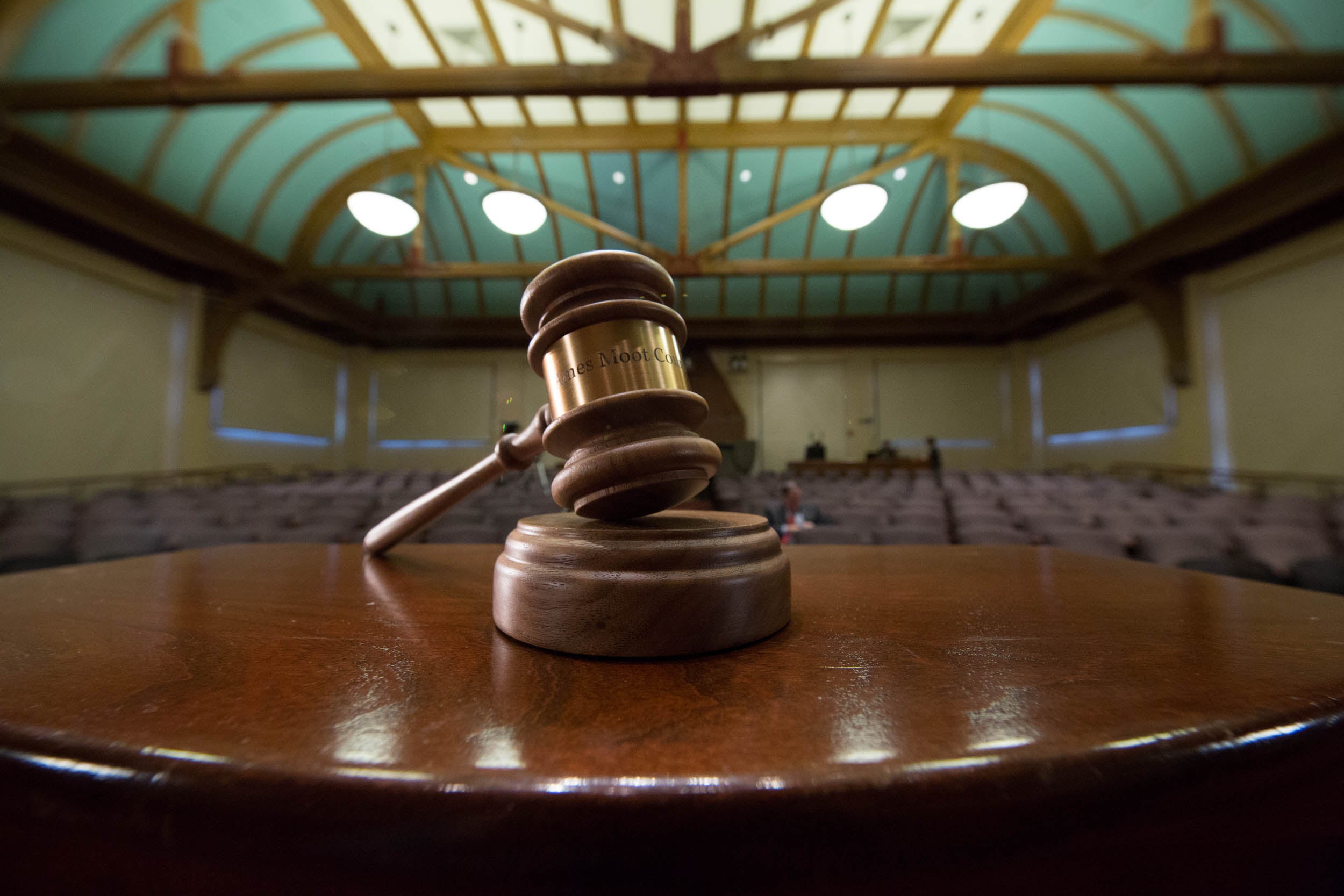
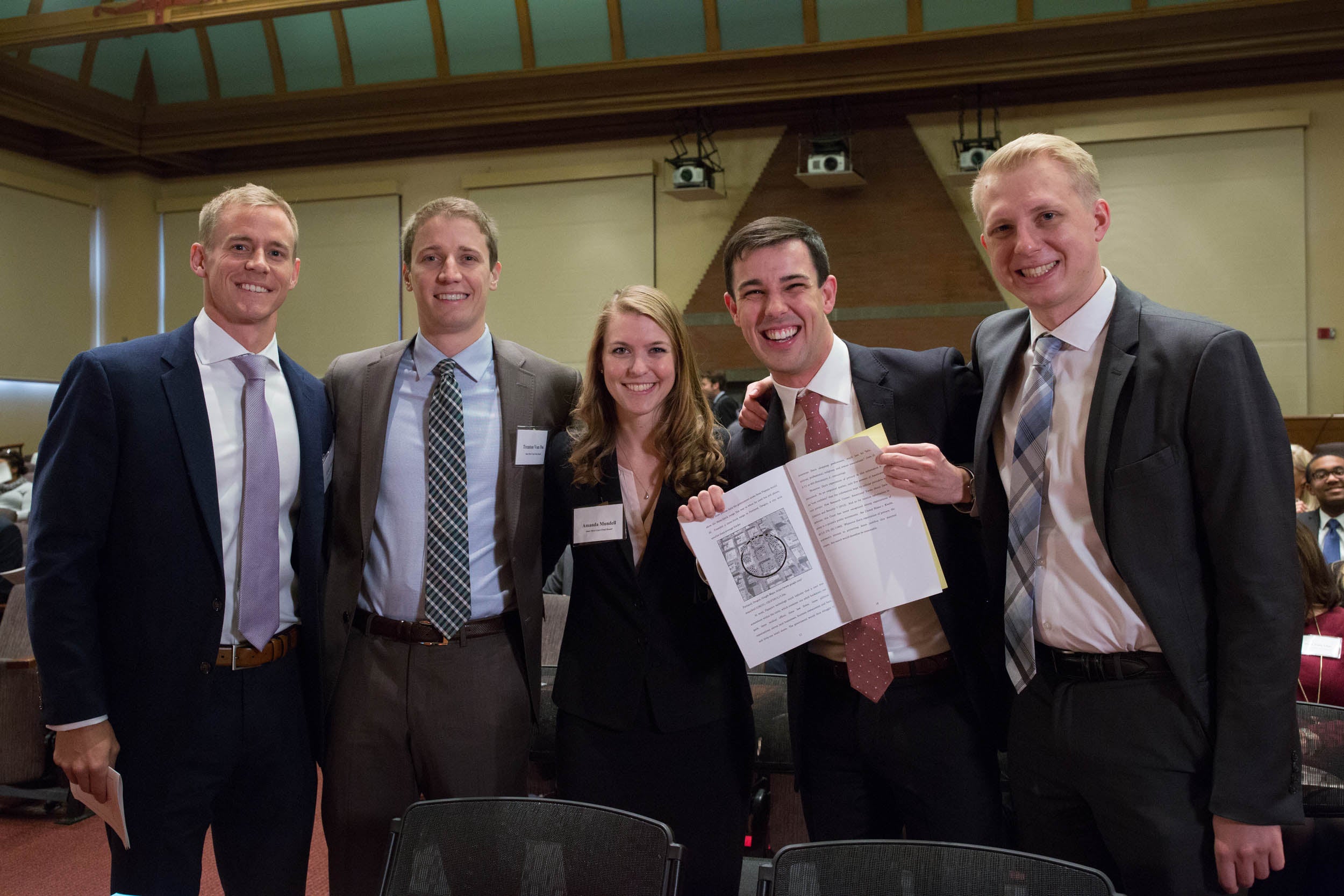
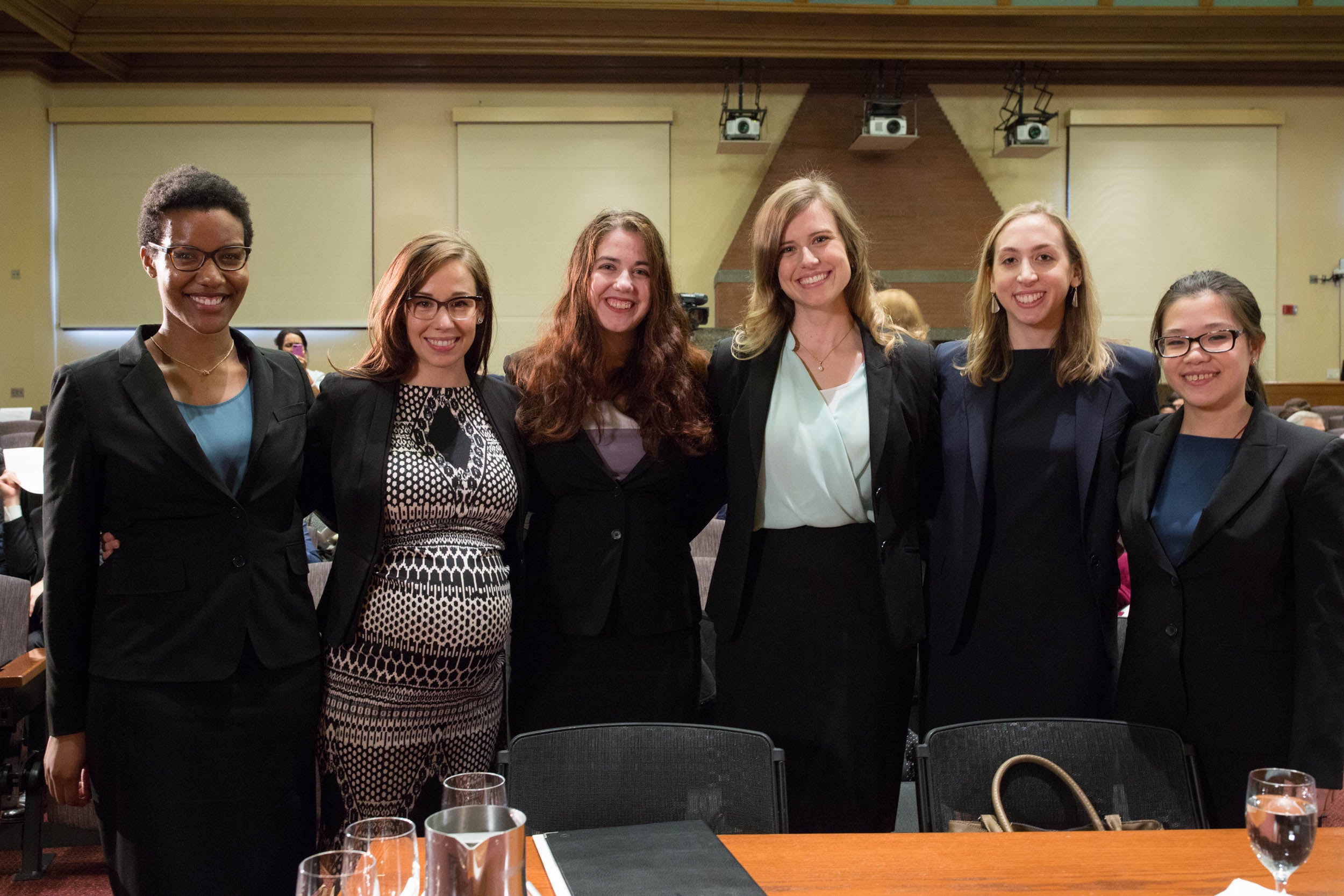
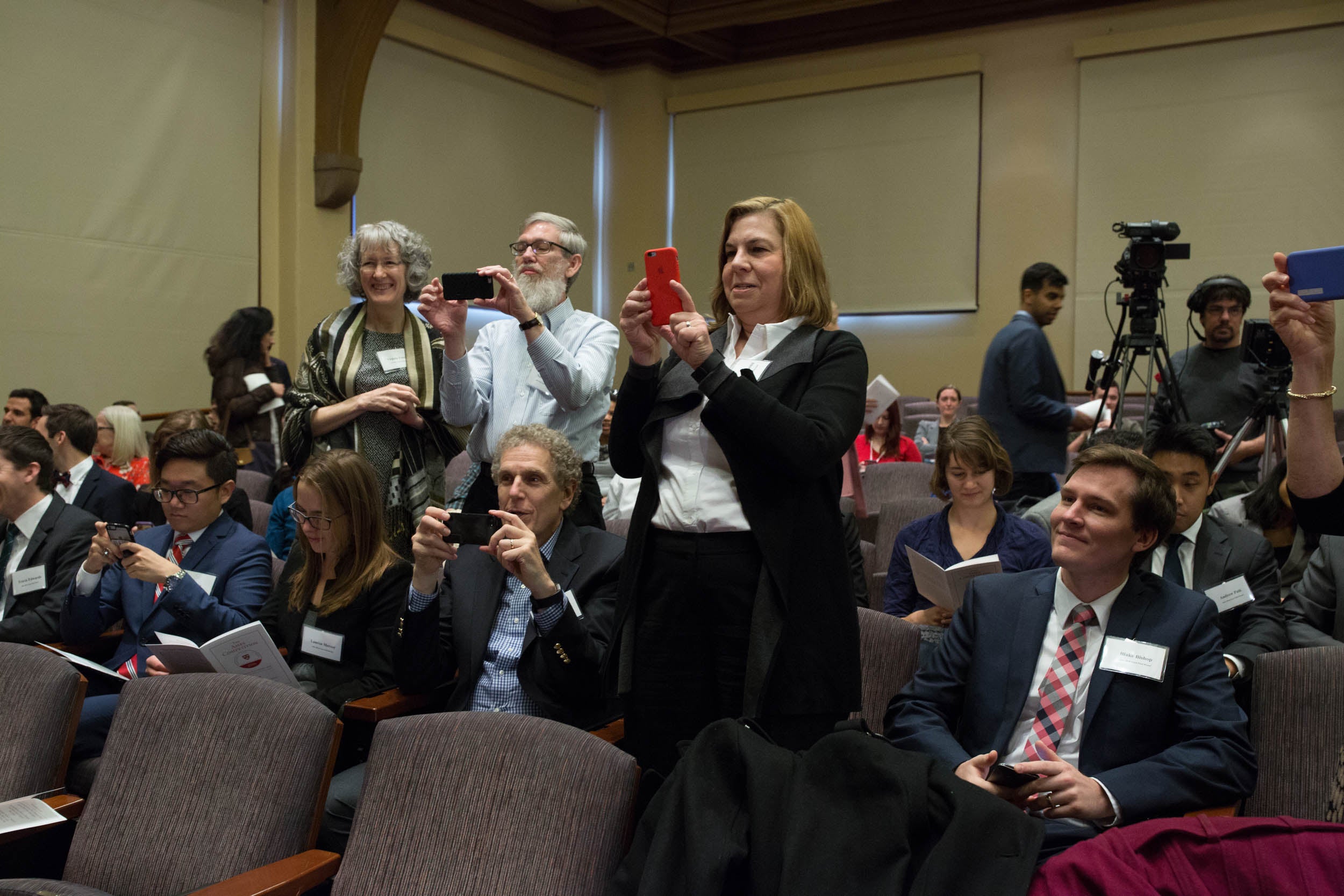
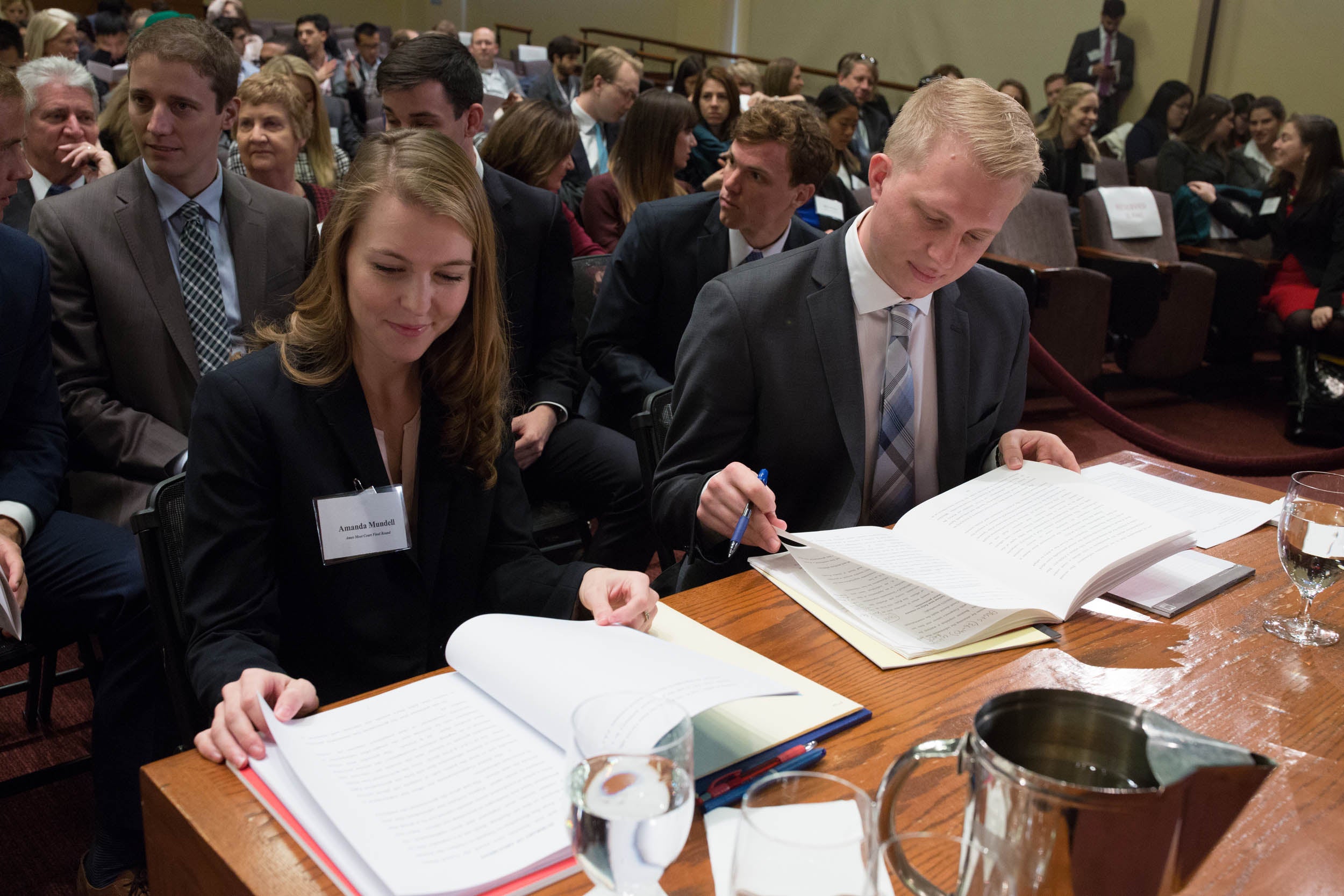
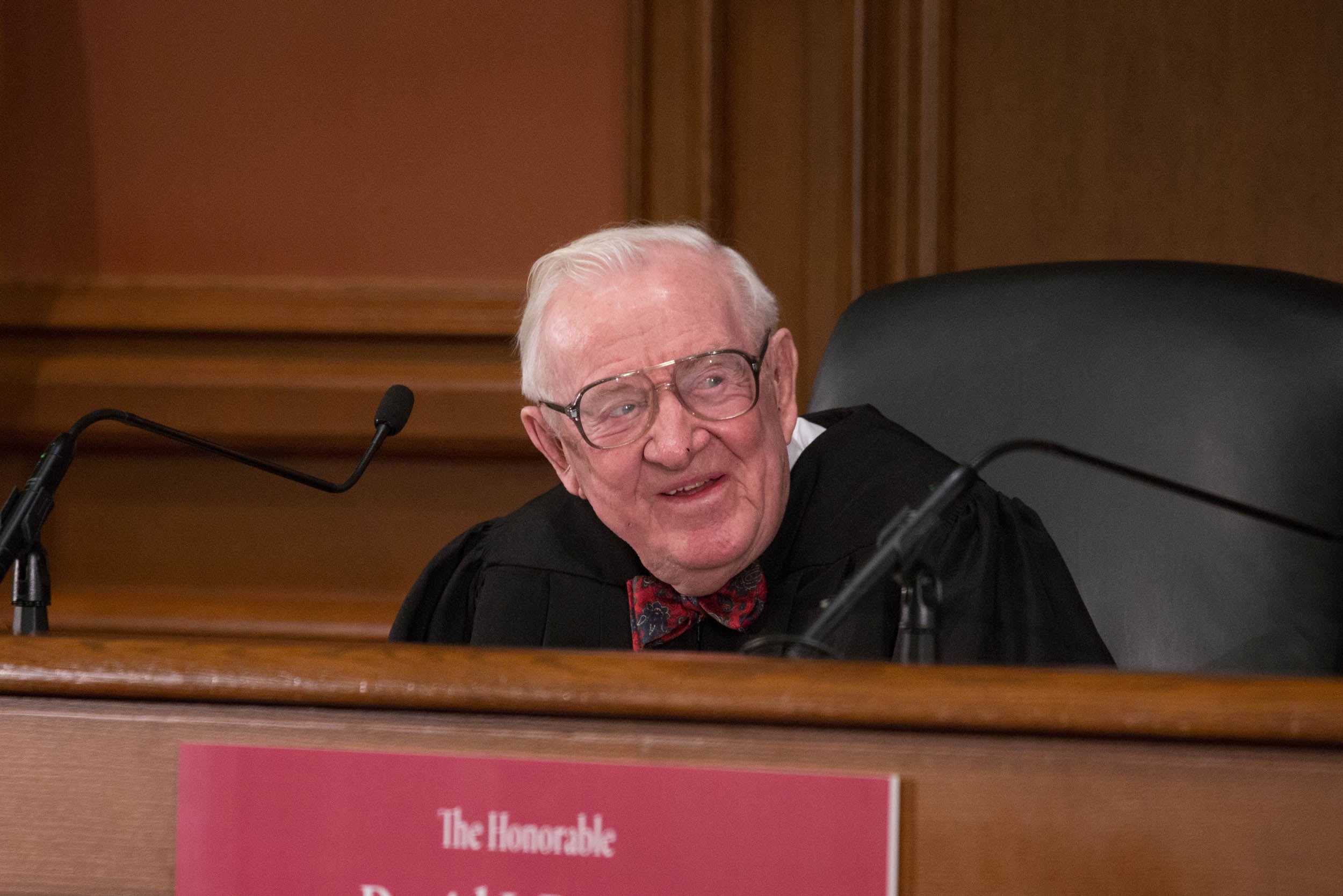
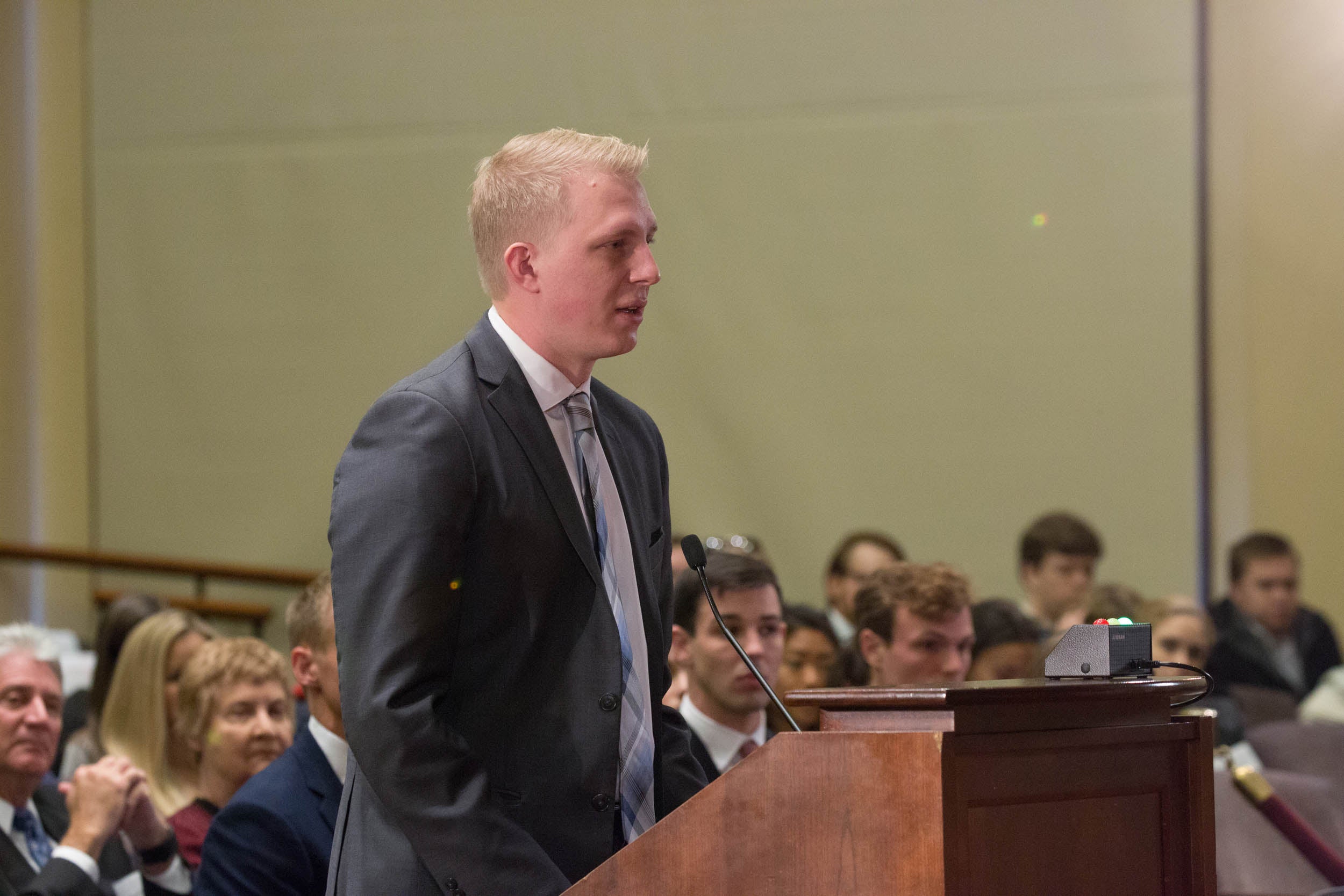
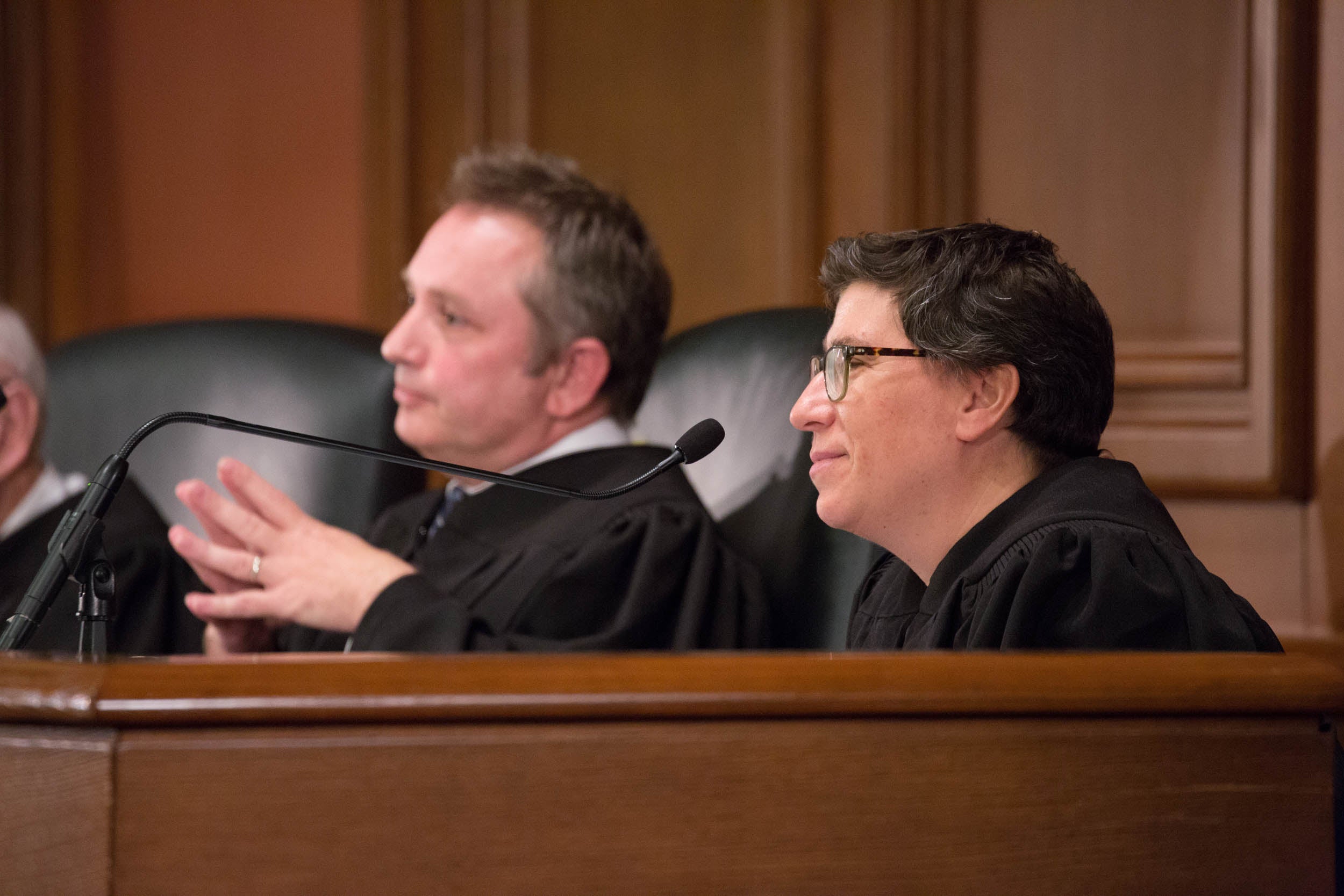
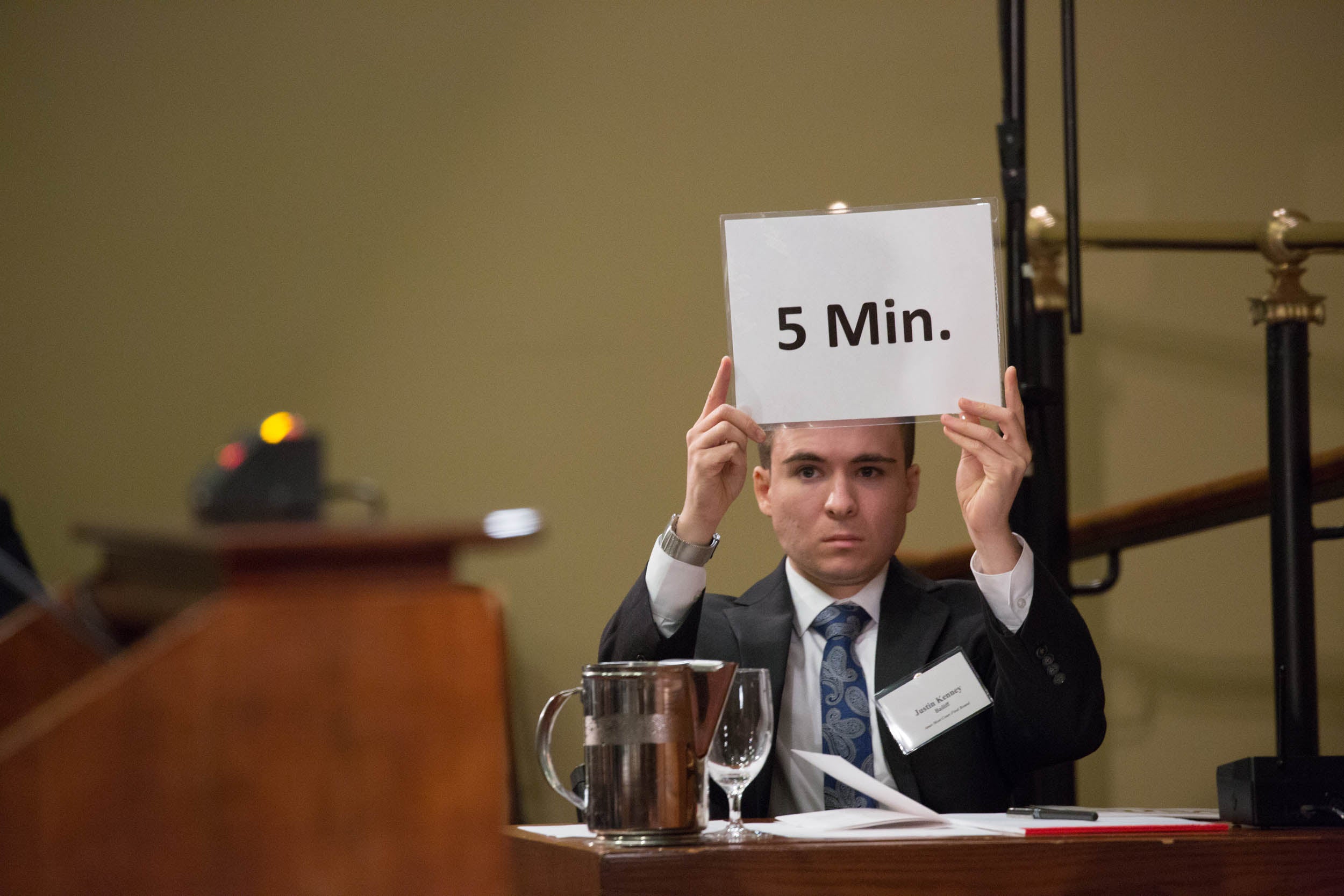
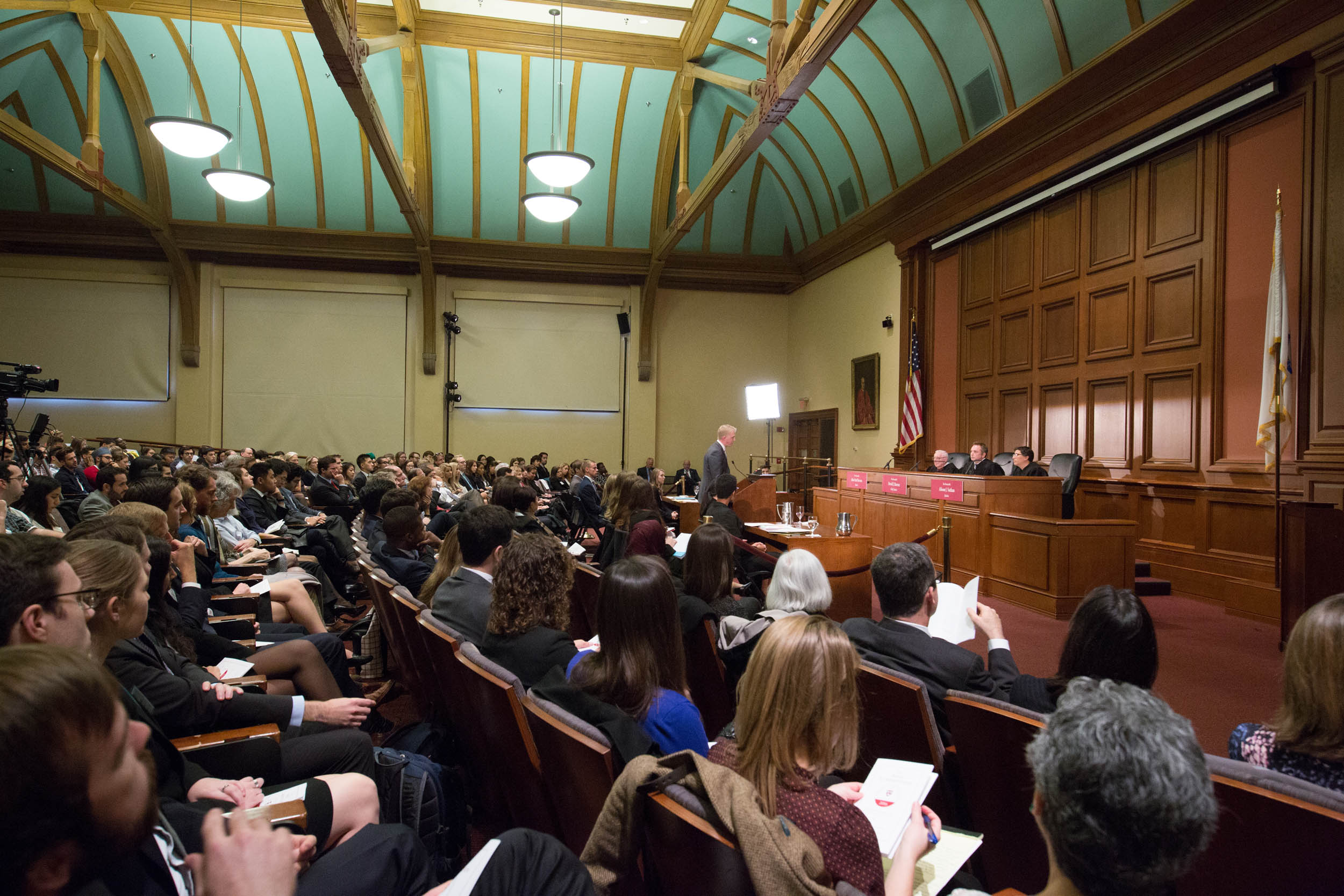
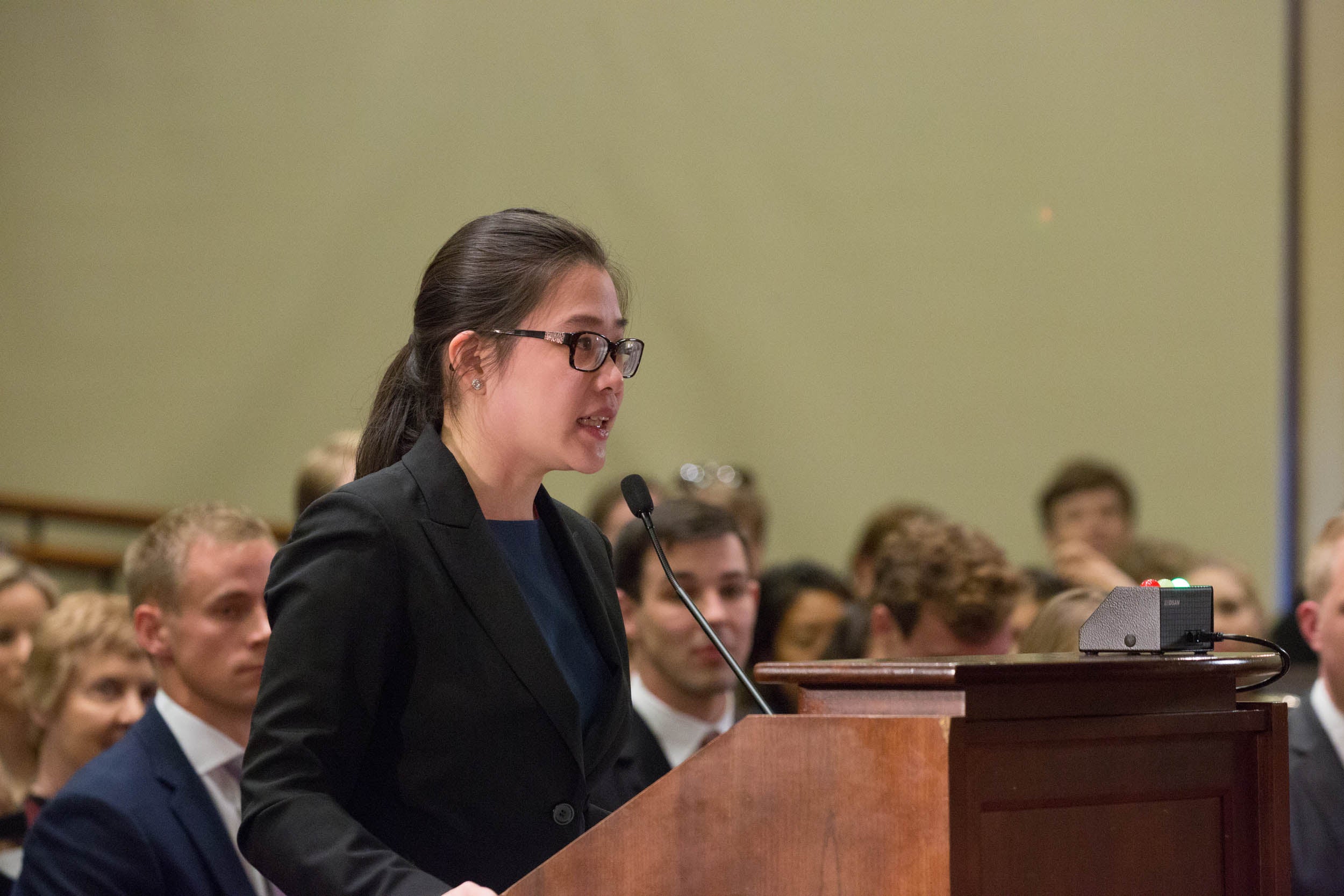
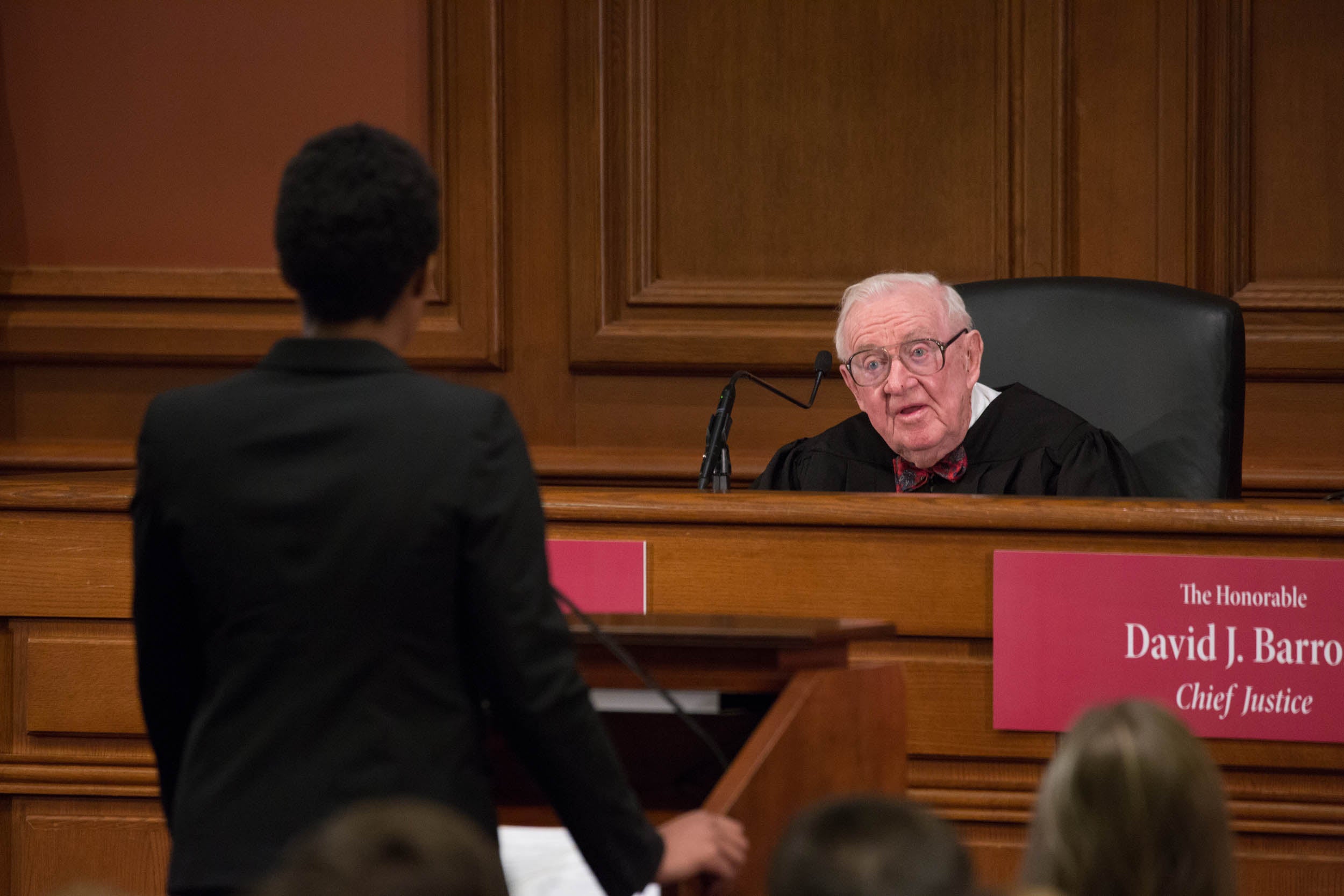
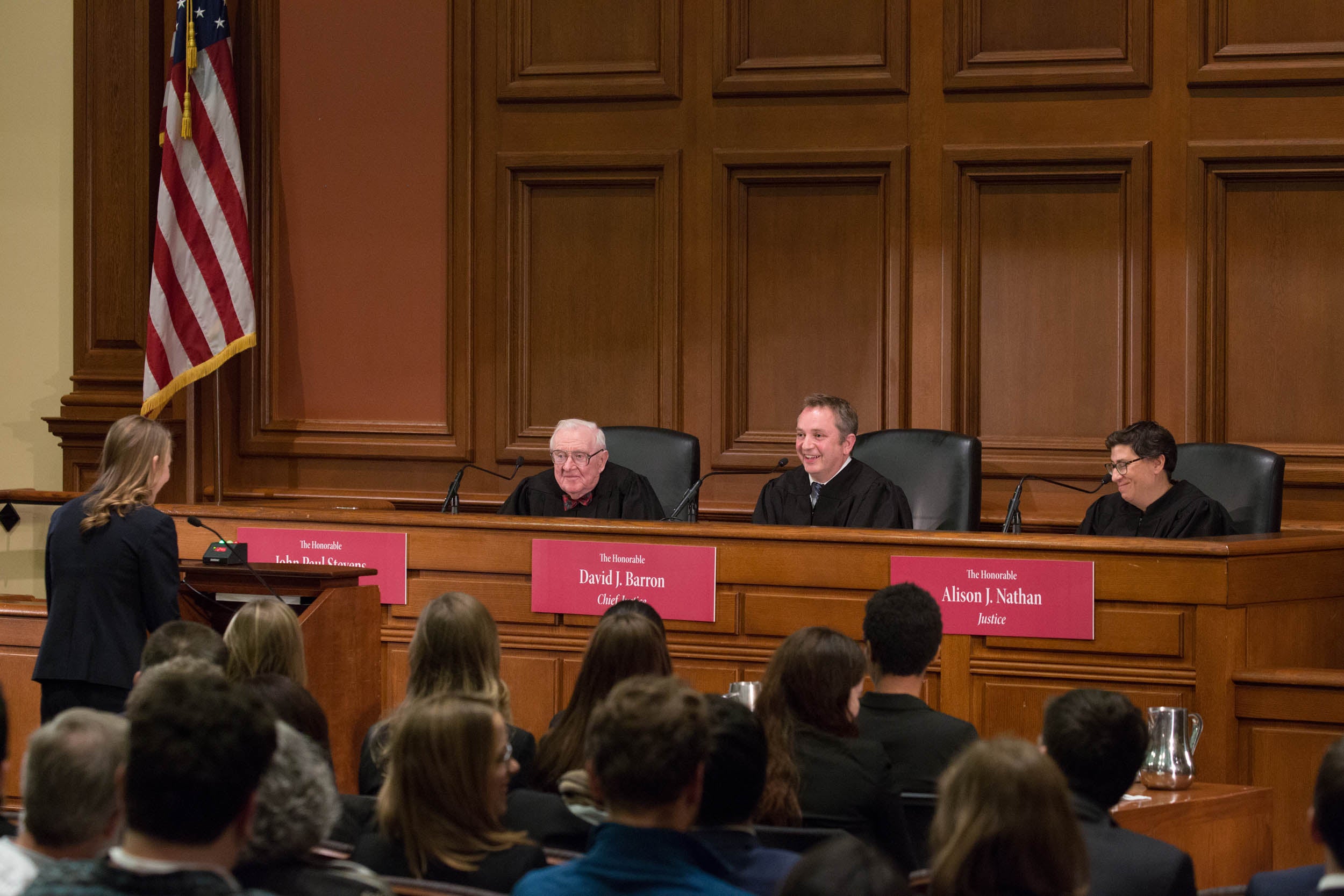
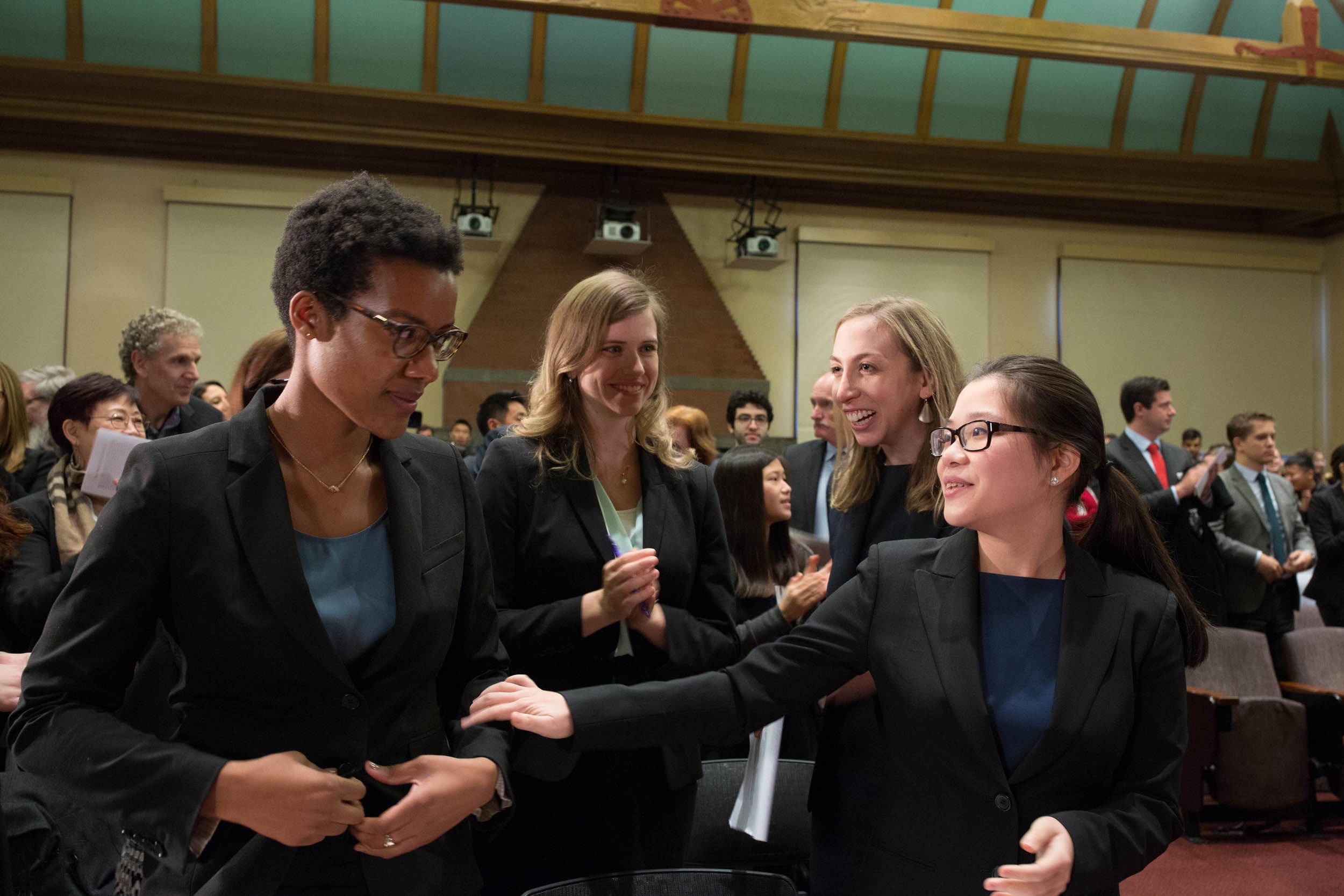
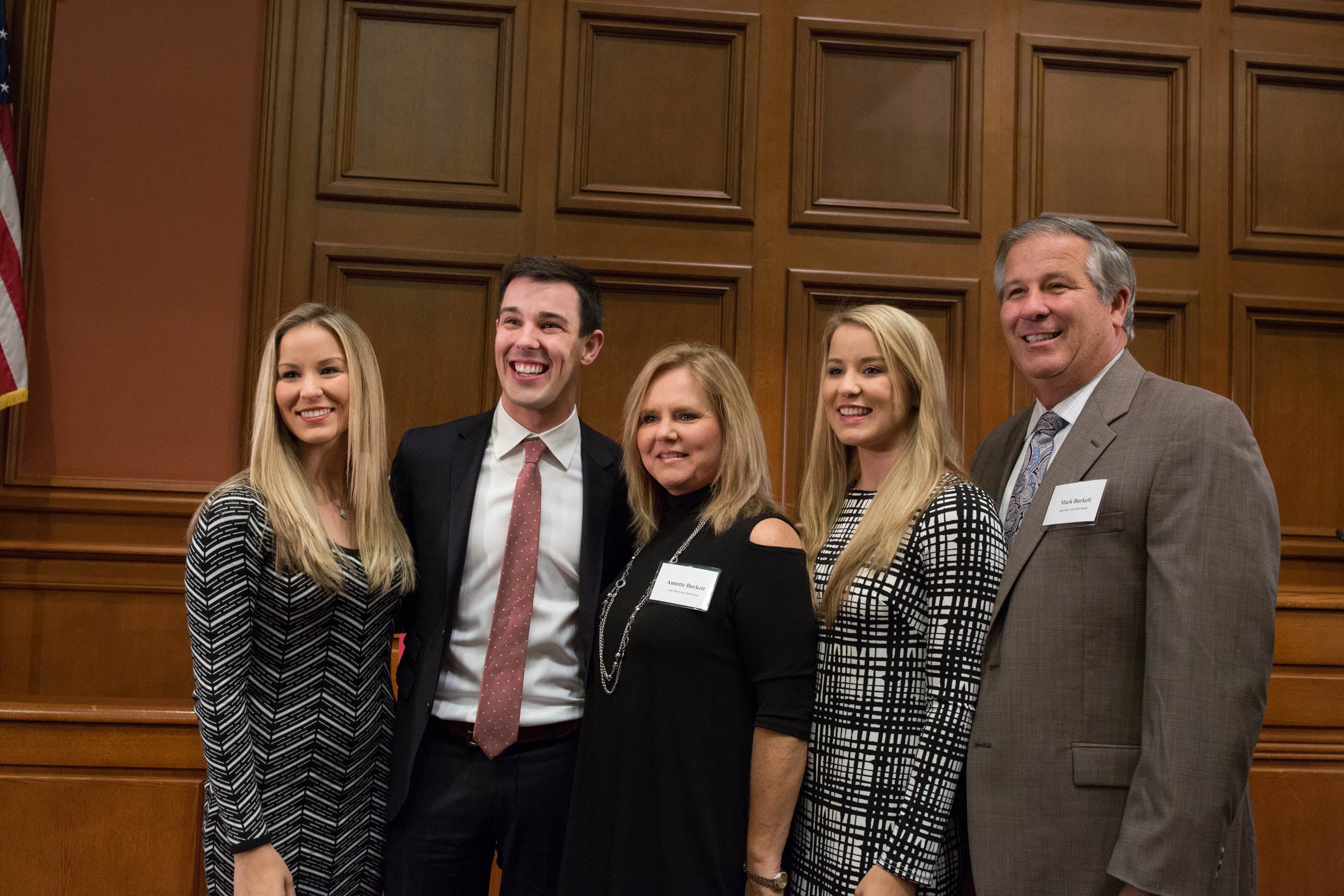
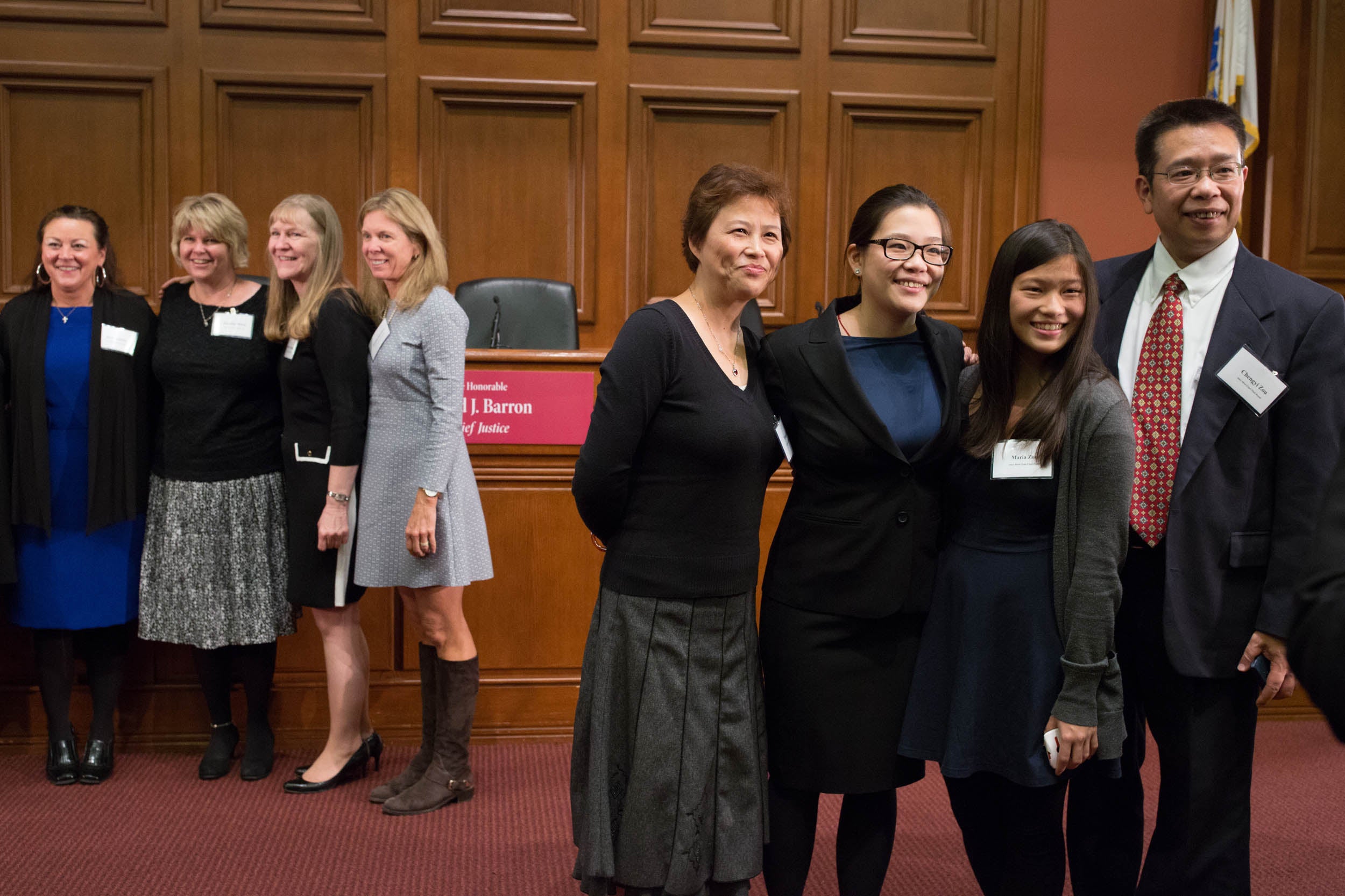
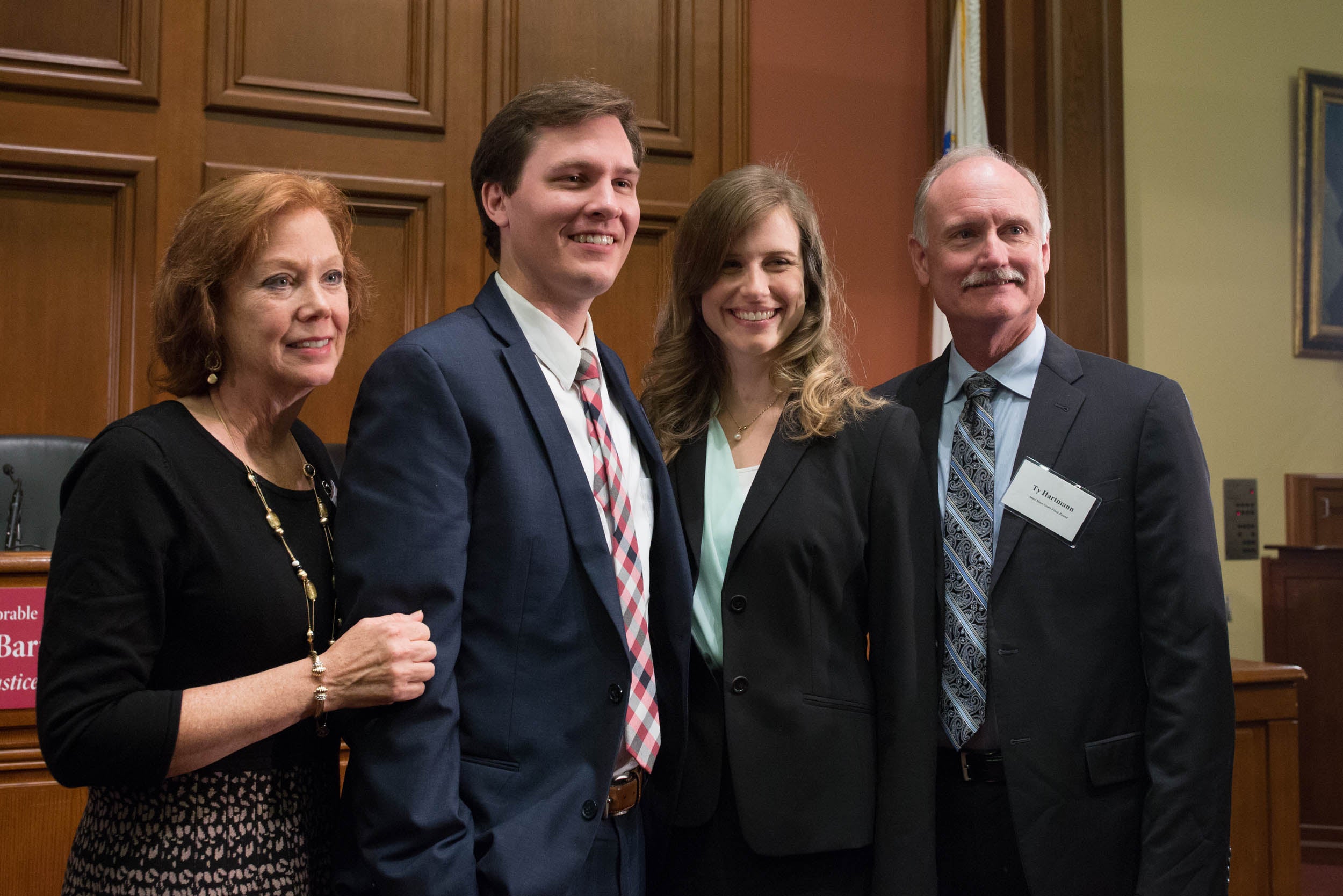
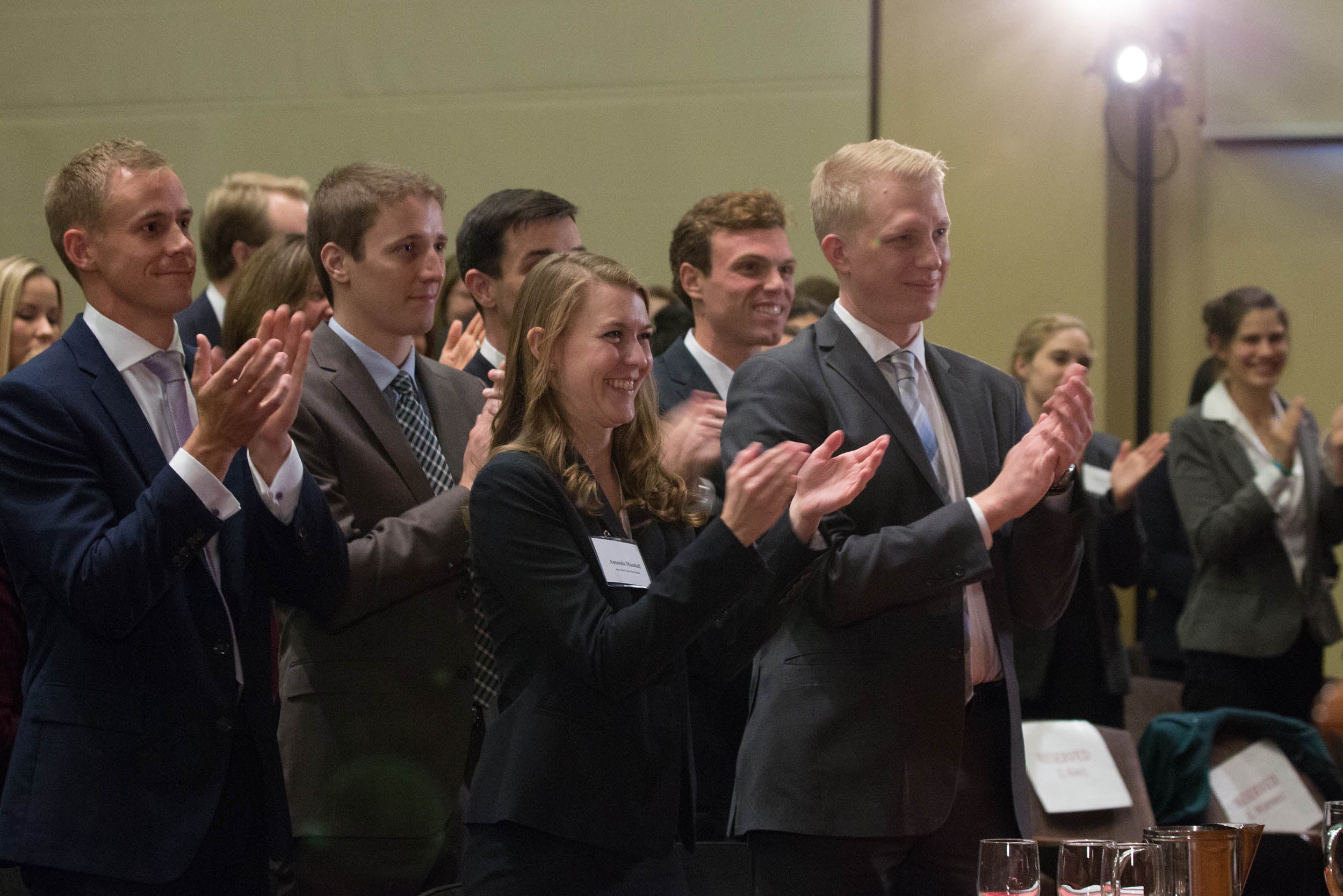
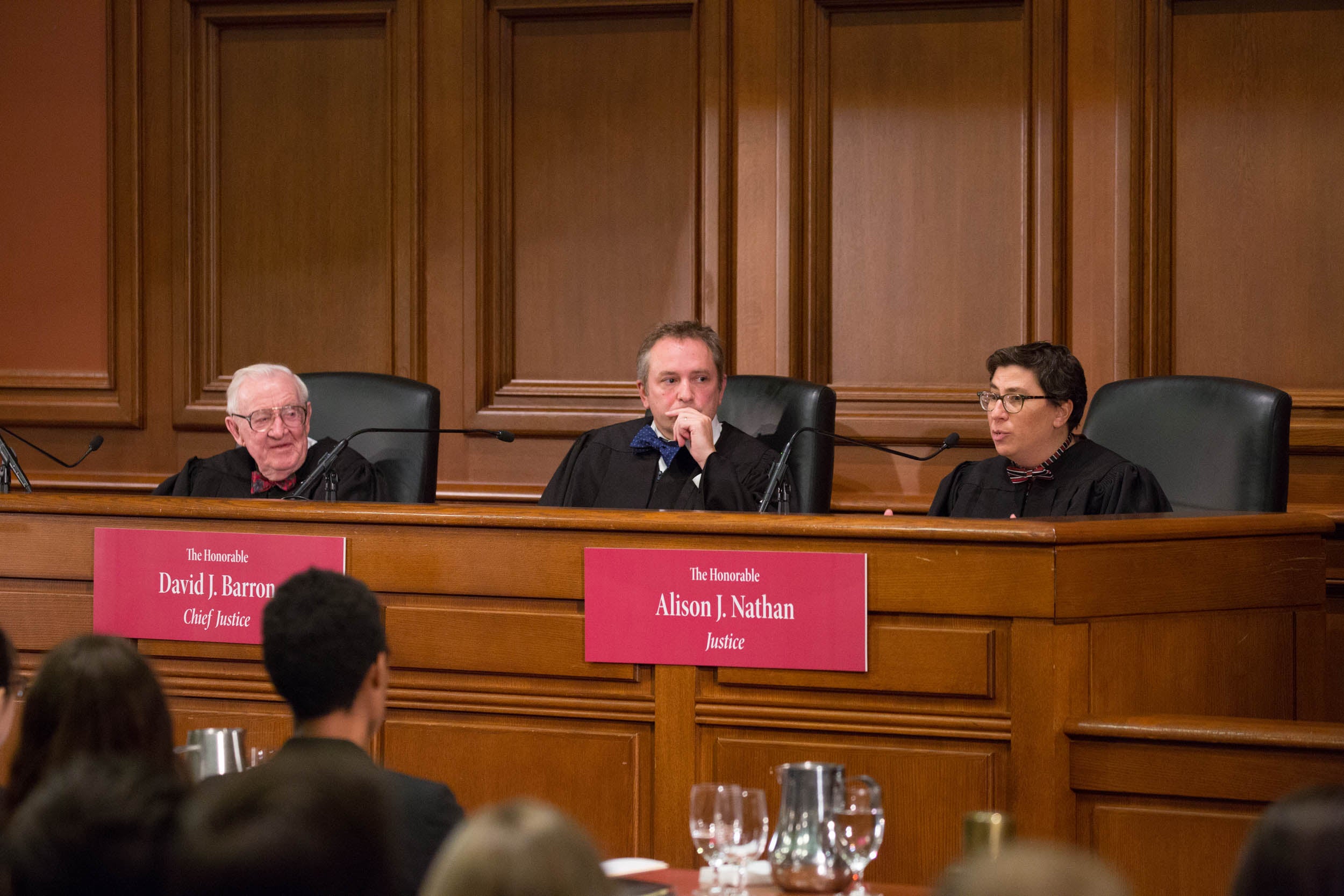
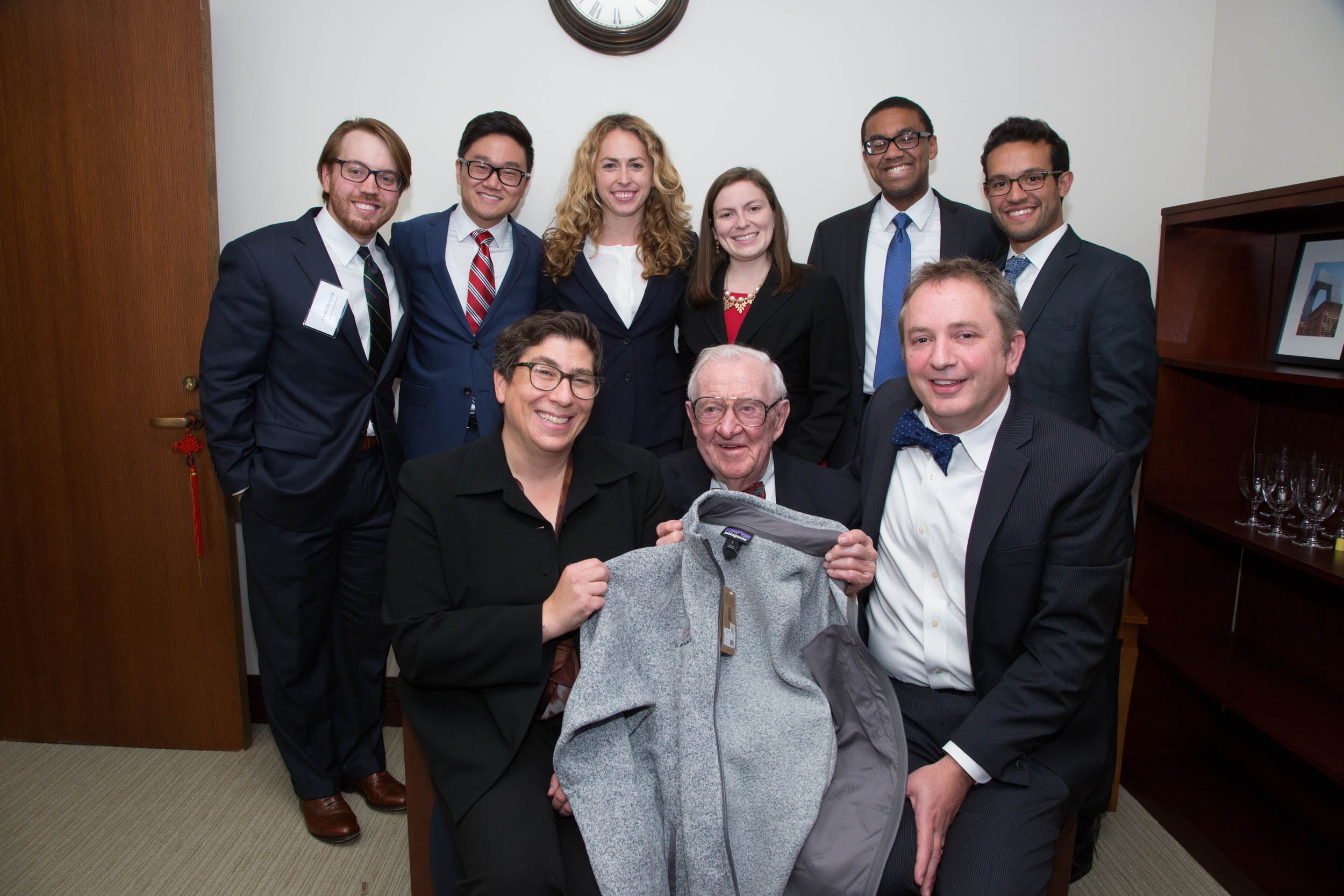
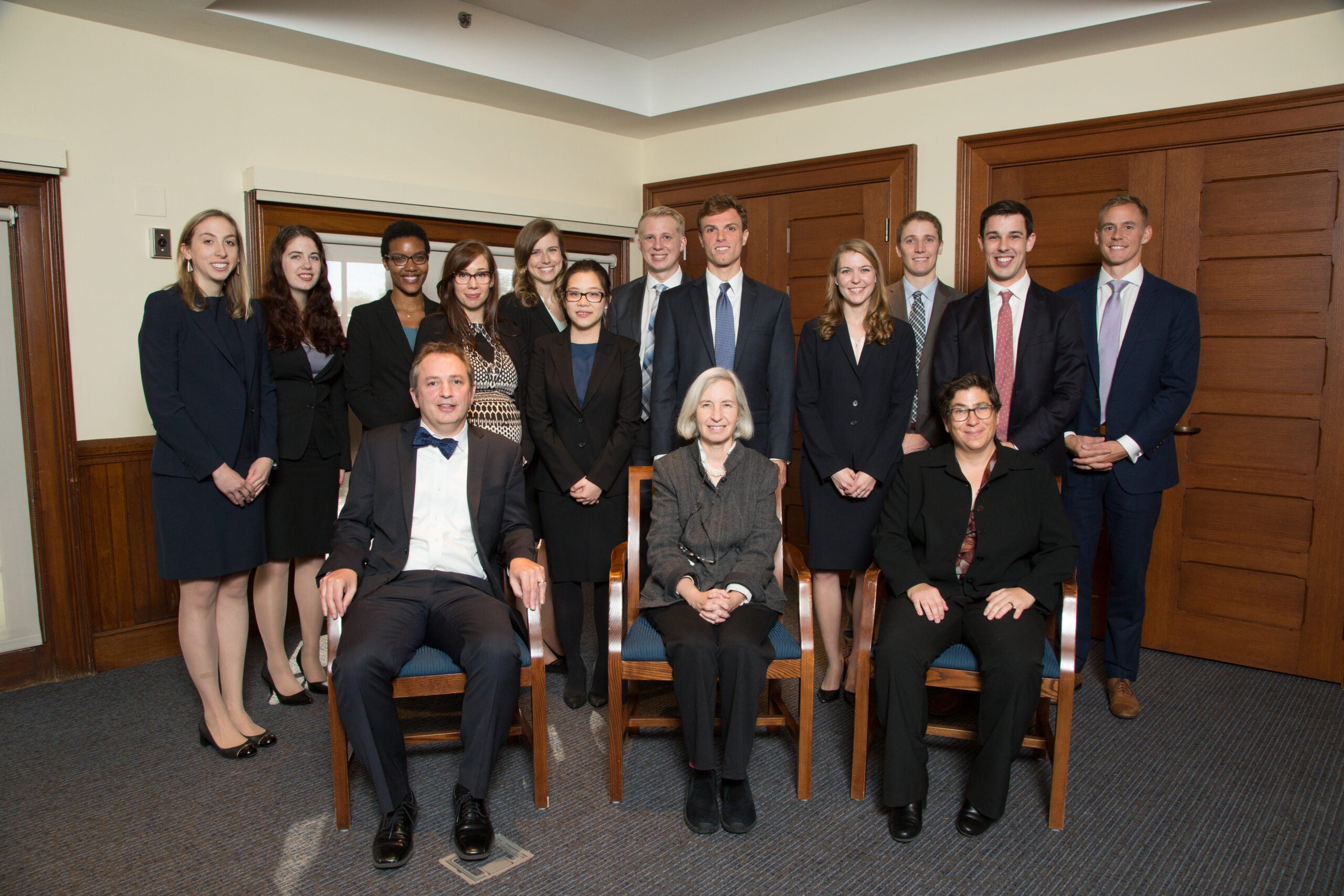
Two teams of 3L students presented arguments in the case. The petitioners, led by oralists Connor Winn and Amanda Mundell, argued on behalf the United States that the order does not impose an undue burden under the SCA and that the Fourth Amendment allows the government to acquire Papaya’s records of the suspect’s location.
The respondents’ oralists, Caroline Trusty and Mengjie Zou, countered that this order imposes an undue burden on Papaya and the Fourth Amendment prohibits the government from obtaining the suspect’s cell site location information without a warrant. The respondents’ team, Lucy Stone Memorial Team, is the first all-women team to compete in the Ames finals competition.
This year’s teams were:
The Daniel J. Meltzer Memorial Team (Petitioner)
Connor Winn, Oralist
Benjamin Burkett
William Ferraro
Luke Beasley
Amanda Mundell, Oralist
Trenton Van Oss
The Lucy Stone Memorial Team (Respondent)
Michelle Adler
Victoria Hartmann
Helen Rave
Caroline Trusty, Oralist
Stefanie Tubbs
Mengjie Zou, Oralist
The Harvard Civil Rights-Civil Liberties Journal hosted a liveblog of the Ames arguments during the event.
After rounds of questioning and considered deliberation, the justices returned to offer their final opinion. The justices awarded The Daniel J. Meltzer Memorial Team Best Overall Team and Best Brief. Amanda Mundell, of the Daniel J. Meltzer Memorial Team, was named Best Oralist.
Stevens offered praised for all Ames participants, saying it was a very fine performance by both teams. “I think the government got it right on the merits,” he said. Stevens said he enjoyed being part of Ames and he said he intended to ask more questions: “I intended to ask more questions but my hearing isn’t as good as it used to be. When I was younger, my father told me that if you are faced with a question of whether to speak up and make a fool of yourself and be quiet, you are better off to be quiet. So I was following that advice.”
Stevens was 90-years-old when he stepped down from the Supreme Court in 2010. At the time, he was the third-longest serving Justice in the Court’s history. (President Barack Obama ’91 appointed former Harvard Law School Dean and Solicitor General Elena Kagan ’86 to the Supreme Court seat vacated by Stevens.) Since retiring, Stevens has written two books, “Six Amendments: How and Why We Should Change the Constitution,” and “Five Chiefs: a Supreme Court Memoir.” In 2012, Harvard Law School celebrated Stevens’ 35 years of service on the Supreme Court with an event honoring his work and his contributions to the fields of environmental, energy, and natural resources law.
Barron, the former S. William Green Professor of Public Law at Harvard Law School, served as a law clerk to Justice Stevens from 1995 to 1996. After clerking, Barron was an attorney adviser for the Office of General Counsel in the United States Department of Justice in the second Clinton Administration. Barron later served as the Acting Assistant Attorney General of the Office of Legal Counsel at the United States Department of Justice.
Nathan, who served as a Supreme Court clerk for Stevens from 2001 until 2002, was appointed to the U.S. District Court for the Southern District of New York in 2010. Prior to her federal judgeship appointment, Nathan worked in the office of the Attorney General of New York as a special counsel to the state’s Solicitor General. From 2009 until 2010, she served as a special assistant to President Barack Obama and also as Associate White House Counsel.
The students participating in the Final Round started the competition in fall. Two teams progressed to the Final Round through their strong research abilities and excellent written and oral advocacy. The Ames Moot Court competition is administered by the HLS Board of Student Advisers (BSA).
Past Ames Competition winners include Harvard Law School Professor Cass Sunstein, former Stanford Law School Dean Kathleen Sullivan ’81, former Massachusetts Governor Deval Patrick ’82, and Justice Harry Blackmun ’32. Click here for a list of past winners of the competition.
